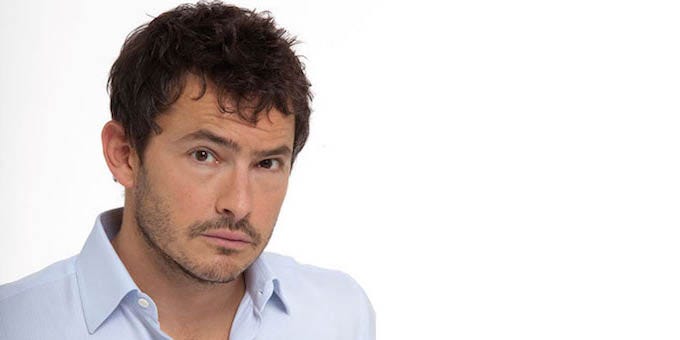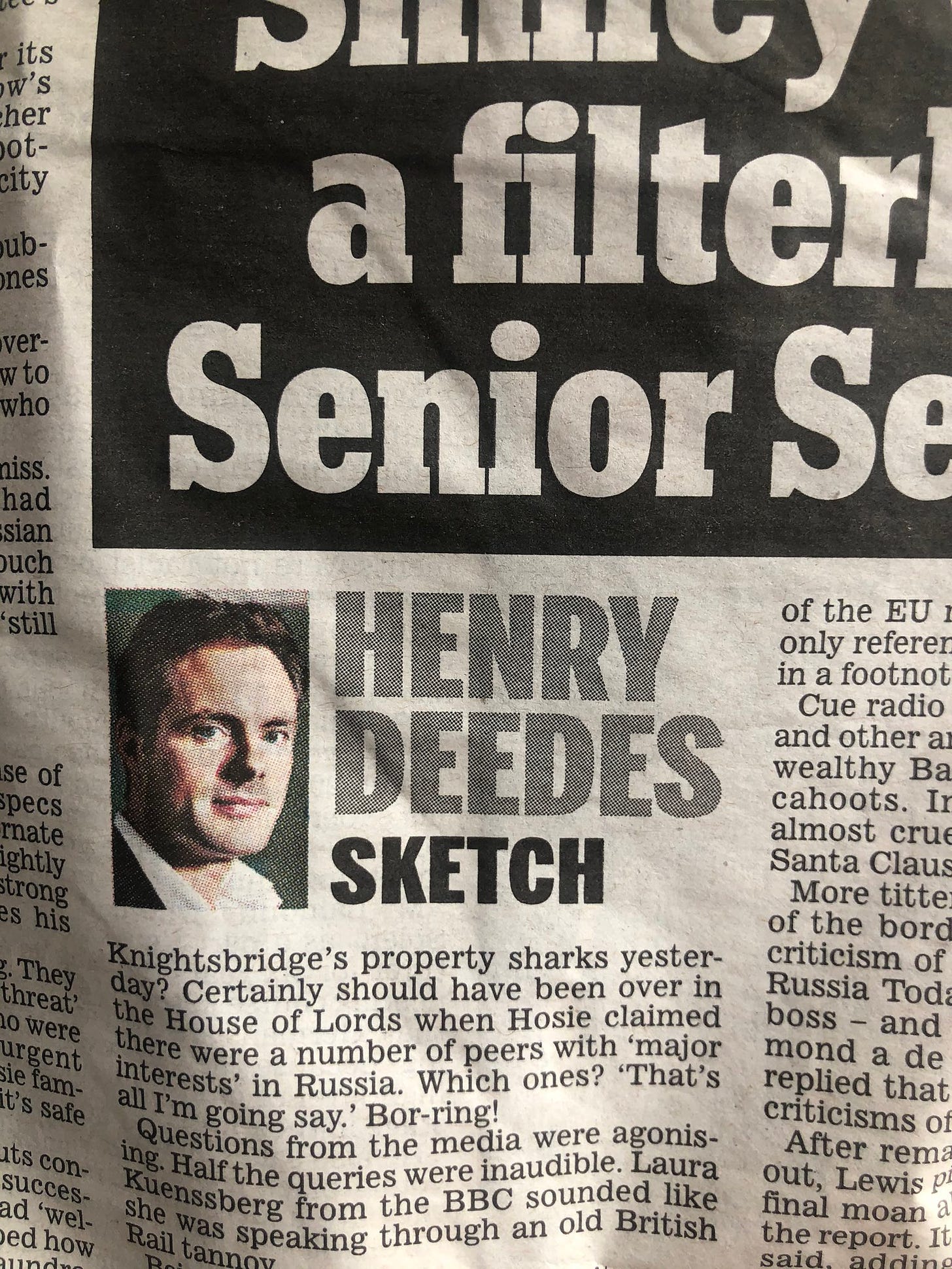British media and press nepotism: The hereditary principle for hacks is a disease
I'm sure they're all brilliant and that's why they get given columns for their 18th birthdays. Oh, what is the f--ing point?!

The very talented and not-at-all lucky or unpleasant Giles Coren
I was punishing myself yesterday by forcing myself to review The Daily Mail. As I flicked through the pages using gloves and a special face shield to avoid any bile splashing from a story and blinding me forever, I noticed a name that jumped out: Henry Deedes. While I’d been aware that Deedes is a Daily Mail columnist, my brain, perhaps out of an abundance of self-preservation by a nervous system already far too used to anger endorphins, I hadn’t made the connection before:
Henry Deedes is the son of Jeremy Deedes, the former Chief Executive of The Daily Telegraph. And Jeremy Deedes, who no doubt climbed his way up that most greasy of poles at The Daily Telegraph, is the son of Lord Deedes, who both edited The Daily Telegraph and secured a ministerial role in the Thatcher administration, while still managing to clock up nearly 60 years in association with the Telegraph as a columnist and leader writer.

I explored a little further and discovered Henry’s brother George was for a long time a senior advertising sales executive at the Daily Mail. Meanwhile, his cousin, Sophia Money-Coutts (a Wodehouse character escaped from the pages of a novel and on a parodic rampage) writes columns for the Sunday Telegraph and Evening Standard.
There is a hereditary principle at work in the UK media industry. It has us into our fourth generation of onscreen Dimblebys, our second lot of Snows, and provides as I just noted an abundance of ‘dirty’ Deedes (merely an irresistible pun; I impute neither their hygiene nor their morality, such as such a thing exists in British tabloid newspapers) — and yes, The Daily Telegraph is a tabloid at this point.
There are two Corens — Victoria Coren-Mitchell and Giles Coren — whose father Alan Coren bestrode the British comedy and journalism worlds with ease. On the centre left, Alan Rusbridger’s daughter with the educator Lindsay Mackie, Isabella Rusbridger, took on a nom de guerre as Bella Mackie while she wrote for The Guardian during her father’s years editing it. She is a fine writer, but the subterfuge around the name actually led to more not less suspicious around her position.
When you raise these things — and by ‘you’, I mean me — you’re likely to receive rage and disapproval from the media establishment. It is considered terribly déclassé to point out that many people are elevated to columns or onscreen positions far more quickly by dint of their DNA.
When Owen Jones, who does not have familial ties to the media, periodically raises the issue of nepotism/narrow entry into the UK media he is subjected to waves of attacks. It’s just not something the ‘top’ ranks of the British media classes want talked about. In their minds, diversity is fine, or whatever, but if your mother is lovely and known on the dinner party circuit or your dad’s a bloody great bloke, then your time in job interviews is going to be much easier.
George Osborne, appointed to be the editor of the Evening Standard with no professional journalism experience of note (he’s now Editor-in-Chief), has been replaced by Emily Sheffield, an experienced journalist who just happens to be the sister-in-law of Osborne’s good friend (and former Prime Minister) David Cameron.
Often the nepotism fades into the mists, both because lots of people do prove themselves after their unfair leg up, and often because it’s just not polite to speak about it. So it is that few people mention that Ben Preston at The Times (himself married to Times columnist and recent Orwell Award winner Janice Turner) is the son of storied Guardian editor Peter Preston, who sat in the hot seat at that paper for 20 years.
Or that Anna Wintour who has ruled Vogue with such dictatorial flair since 1988, is the daughter of Charles Wintour, who edited the Evening Standard, and was a totemic figure in his era of British journalism. Similarly, Nick Ferrari has been around for so long on LBC and other stations that his being the son of Lino 'Dan' Ferrari, who founded the Ferrari news agency in 1945, isn’t commented upon.
Am I arguing that the children of journalists and broadcasters should never become journalists and broadcasters themselves? No. But I am arguing for a media that lets in a lot more people without familiar media names and which does not elevate a Deedes, a Geldof, a Coren, or a Dimbleby artificially speedily through the ranks. Talent for journalism and broadcasting is as much learned as it is inherited and the hereditary principle among hacks plays a big role in keeping the number of voices we hear too narrow, too white, and too centred on a small media elite.


